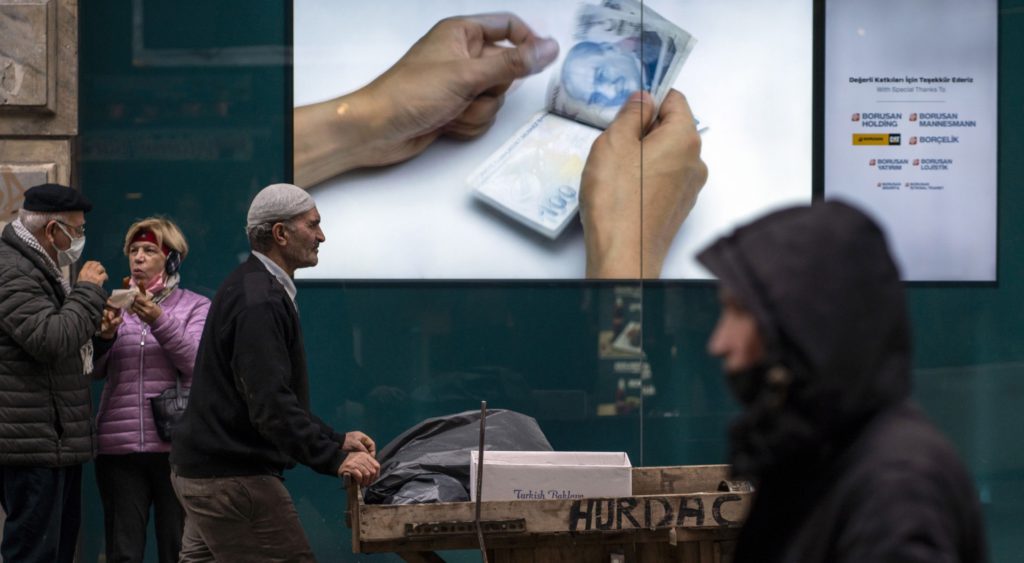(Bloomberg) — Turkey’s emergency measures to bolster the volatile lira are in effect an interest rate hike in disguise, steps that leave the government budget more vulnerable to future currency shocks.
The Turkish currency had lost more than 50% of its value against the dollar since September as President Recep Tayyip Erdogan leaned on the central bank to slash borrowing costs in an effort to lure investment and shore up his waning popularity. A rescue plan announced Monday promised investors protection from the currency’s wild swings and sent the lira soaring, something that may buy Erdogan time politically ahead of 2023 elections.
How Erdogan’s Plan to Halt the Lira’s Fall Is Meant to Work
Should the lira’s decline against hard currencies exceed banks’ interest rates, the government will pay holders of lira deposits the differential. But by putting a floor under the lira in that way, the government has raised rates without saying so while depriving lira-holders of the benefits, critics said.
“There has been an epic interest rate hike without calling it one,” according to Refet Gurkaynak, a professor of economics at Bilkent University in Ankara. “There will be a big burden on the budget when there is a sharp increase in the foreign-exchange rate. This kind of burden usually gets monetized, which means even higher foreign-exchange and inflation rates.”
Sacrificing Budget
The plan is intended to suppress retail investors’ demand for dollars, but skirting a formal rate hike comes at a cost: The Treasury will now underwrite losses in new lira deposits in the case of another run on the currency.
That puts a strain on one of the few remaining bright spots in Turkey’s economy — its fiscal position — and highlights a growing trend among policy makers to lean on the public budget to pay for the cost of misguided policies.
“We can say that the budget — the last remaining anchor — has been sacrificed to claim that a rate hike has been avoided,” according to Ibrahim Turhan, a former deputy governor of the Turkish central bank who is now an opposition politician. “In this way, the cost of the lira’s depreciation has been put on the society as a whole.”
The lira surged more than 20% after Erdogan’s speech Monday. It jumped again on Tuesday before trimming gains to trade 2.9% higher at 12.9577 per dollar at 3:22 p.m. in Istanbul. Even so, the currency is still down more than 40% against the greenback this year. That, and the hefty minimum wage increase announced last week will keep fueling annual inflation beyond last month’s 21.3%. That was already more than four times the government target of 5% and way above the central bank’s benchmark interest rate of 14%.
This week’s measures come after direct interventions by the central bank in foreign-exchange markets failed to stabilize markets despite the billions of dollars Turkey sold from its foreign reserves.
Below is a summary of other moves announced Monday that are designed to make lira investments more attractive. There will be no restrictions on the free-market economy, Erdogan said.
Authorities will offer non-deliverable forwards to help exporters mitigate foreign-exchange risks emanating from the elevated levels of volatility.
Withholding tax for investments in lira bonds issued by the government will be reduced to 0% from 10%.
The government will match 30% of all contributions made by private-sector workers to the optional pension system, up from the current level of 25%.











